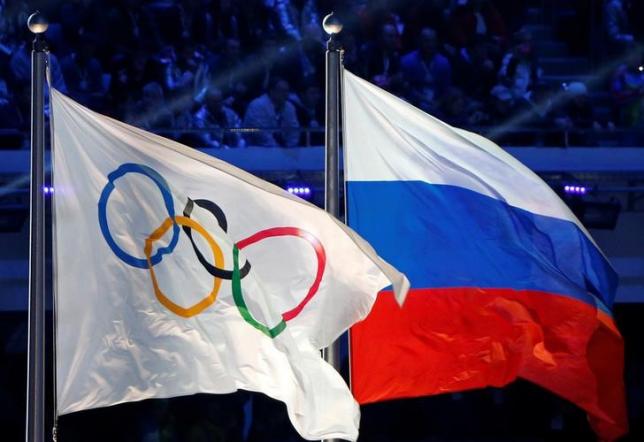-
Tips for becoming a good boxer - November 6, 2020
-
7 expert tips for making your hens night a memorable one - November 6, 2020
-
5 reasons to host your Christmas party on a cruise boat - November 6, 2020
-
What to do when you’re charged with a crime - November 6, 2020
-
Should you get one or multiple dogs? Here’s all you need to know - November 3, 2020
-
A Guide: How to Build Your Very Own Magic Mirror - February 14, 2019
-
Our Top Inspirational Baseball Stars - November 24, 2018
-
Five Tech Tools That Will Help You Turn Your Blog into a Business - November 24, 2018
-
How to Indulge on Vacation without Expanding Your Waist - November 9, 2018
-
5 Strategies for Businesses to Appeal to Today’s Increasingly Mobile-Crazed Customers - November 9, 2018
Russia, Kenya track teams may miss Rio after doping rulings
Dozens of Russian athletes at the 2014 Winter Olympics in Sochi, including at least 15 medal winners, were part of a state-run doping programme, meticulously planned for years to ensure dominance at the Games, according to the director of the country’s anti-doping laboratory at the time.
Advertisement
Cross-country skier Alexander Legkov who won gold and silver at Sochi called the claims a “political game”.
The allegations complicate Russia’s efforts to distance itself from previous accusations of state-sponsored doping made by an independent WADA commission and are likely to make it harder for Moscow to overturn a ban on its athletes competing at the Rio Olympics.
The New York Times report also alleged that Russian officials involved in the plot had found a way to access supposedly tamper-proof containers used to collect urine samples without anyone knowing.
But there are also concerns about the subsequent Paralympics, particularly considering how Russian Federation won 30 Paralympic golds, 28 silvers and 22 bronzes at Sochi 2014 to finish with a total haul of 80 medals, 65 more than any other country.
“What’s written now in this article is baseless libel”, Zubkov told Russian state TV, adding that he regularly gave doping samples in his career.
“These allegations look absolutely groundless”, Peskov said on May 13.
“I performed honestly. My Olympic victory was not accidental”. When asked about the prospects of Russian athletes being allowed to compete in Rio, Peskov said, “We hope everything will be fine”.
Zubkov and Legkov later threatened to sue Rodchenkov for defamation, with Zubkov calling the accusations are “simply lunacy”.
Russian President Vladimir Putin (C) stands next to Alexander Zubkov, gold medalist in the two-man and four-man bobsleigh for Russia, during the Closing Ceremony of the Sochi Winter Olympics on February 23, 2014.
The International Olympic Committee called on WADA to investigate the claims.
But the IAAF said a ruling it made on Kenya in March – when the East African nation was put on a doping “monitoring list” until the end of the year – would stand.
As for Rodchenkov, he resigned and fled to Los Angeles fearing for his safety.
In a recent interview with 60 Minutes, Vitaly Stepanov, a former employee who worked collecting urine and blood samples at an anti-doping clinic at the 2014 Sochi games, admitted that he would often be approached by officials to tamper with results or refrain from testing certain athletes altogether.
In November, Russian President Vladimir Putin said that Russia needed to conduct its own investigation after allegations arose that athletes had been systematically taking performance-enhancing substances.
Advertisement
A report on Russia’s compliance with doping rules would be sent to the International Olympic Committee which would then rule on whether the country’s track and field athletes can take part in the August 5-21 Games in Brazil, he said.




























